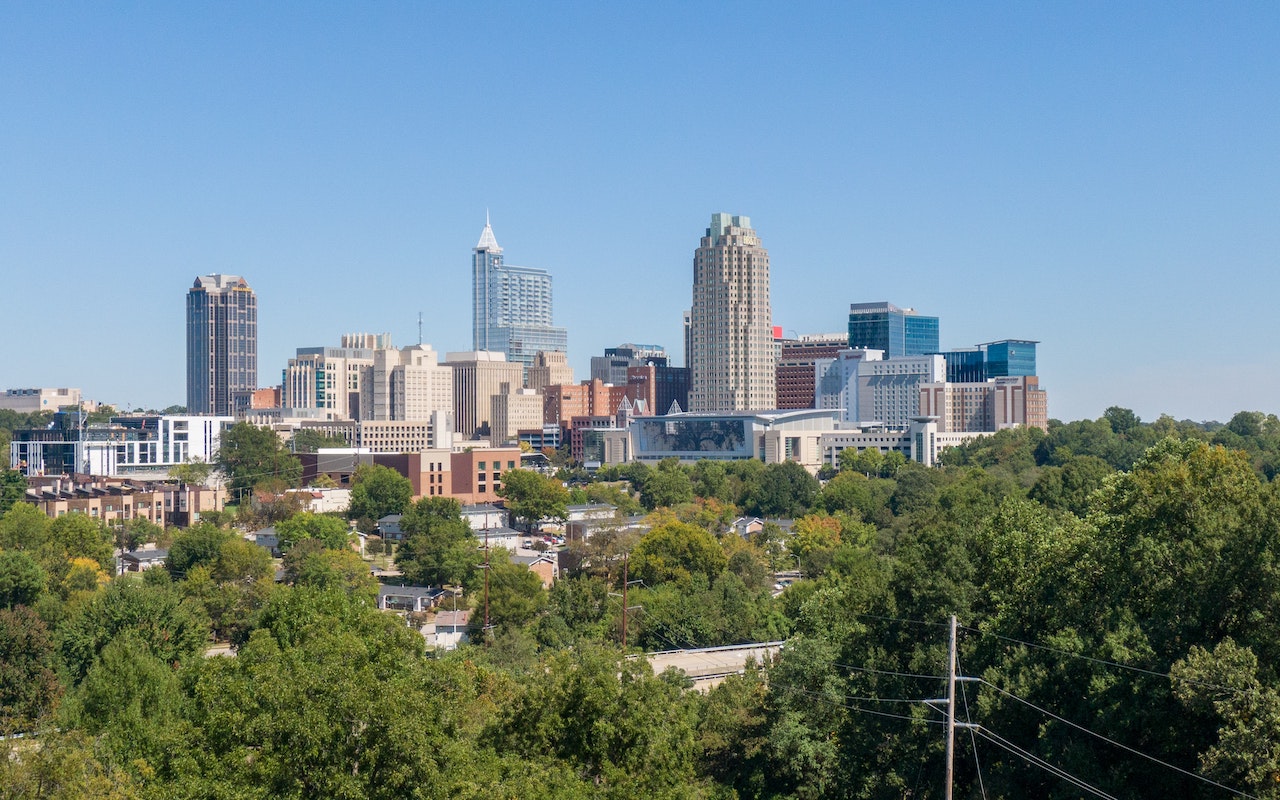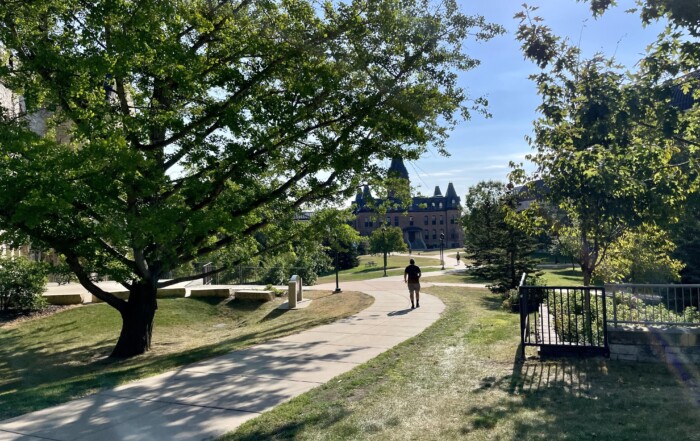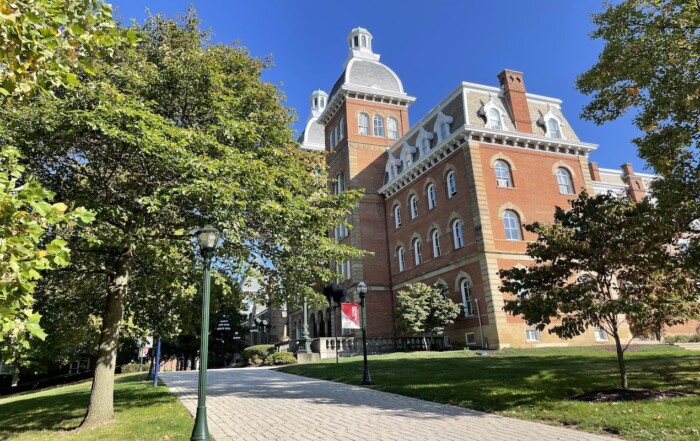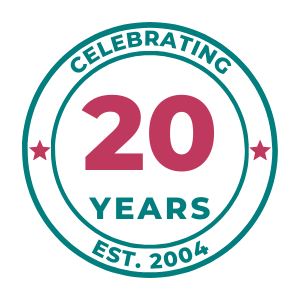College Admissions Tips and Guidance
North Carolina College Road Trip: High Point University, UNC Chapel Hill, Davidson and Duke

Explore Our Articles
Recent Posts
Popular Categories
Get In Touch
On Social
By Phone or Text
(617) 734-3700
By Mail or Email
1678 Beacon Street
Brookline, MA 02445
By Form
Educational Advocates
Our objective is to guide the family in finding options where the student will not only get admitted, but thrive and find success once on campus.
North Carolina College Road Trip: High Point University, UNC Chapel Hill, Davidson and Duke

As college admissions experts, we are frequently invited to multi-day, immersive campus visits to learn about new developments and better educate our clients. Our recent re-visit to High Point University in North Carolina reinforced why it is essential to return to campuses as offerings can change dramatically within a few years. Here is an overview of our North Carolina college visits.
High Point University refers to itself as a life skills university. They believe that a successful college experience not only includes academic excellence, but also hands-on learning, and teaching students the skills and values they need to succeed in their careers. This includes teaching students how to develop their positioning and their personal brand (and communicate it in 60 seconds or less). Character development and even etiquette are emphasized, and there is an honor code. There is a fine dining steak house on campus which students may visit once a week using their meal plan—as long as they make a reservation, dress appropriately, and are willing to be corrected on their manners by the dining staff. It is all about learning the skills that may make a difference in a job interview and the workplace.
The academic and career advising, and the promotion of mentoring relationships, are impressive. Each of the 4,546 undergraduates was assigned a success coach before they enrolled freshman year, and during orientation they discuss expected topics such as course choices, but also talents, strengths and goals. A variety of strength, personality and career assessments are offered to help students think through their pathway. The coach serves as their advisor for freshman year, and there are monthly meetings. There are sales training labs where students are videotaped during mock interviews of all kinds, and they then evaluate and improve their performance with their mentor. There is also a fee-based learning excellence program that is not just for those with a learning difference. Students meet once a week with their learning coach, have required study hours, professional tutoring, and must agree to the program sending a weekly report to their parents. It is not intended to be a four-year program, but rather transition support for the first year or two.
While one can study the liberal arts at High Point and everyone must take a foreign language, most students are primarily interested in a pre-professional track that will lead to a specific career. Colleges include business, communications, art and design, education, pharmacy and health sciences. They boast the number one event management program in the world, and the #7 BA theatre program. Engineering is starting and will further expand next year. There are leaders in residence who visit campus frequently to advise students on projects—they are tops in their field including Microsoft founder, Steve Wozniak, as well as a Today Show producer, a co-founder of Netflix, a Xerox sales executive and a Nightline co-anchor to name a few. Entrepreneurship opportunities to pitch business leaders in residence abound and students get detailed feedback. There is a pitch competition on campus every Friday. All majors can participate in research in the summer or during the year, and some are offered stipends, and others credit.

The facilities are modern with the highest level of technology. Many buildings look like high-end hotels. The health science majors in exercise science, physical therapy and athletic training have access to a well-lit, spacious training facility with technology such as a gravity machine that allows patients who are not yet weight bearing to exercise during rehabilitation. The faculty recruited from other universities said they have never seen such advanced technology in a college setting.
Unsurprisingly, with all these offerings the university is attracting interest. Last year High Point received nearly 9,000 applications for 1,400 spots in the freshman class. This year they are expecting 11,000 applications. This year the admit rate for early decision applicants was 83%, for early action: 72%, and regular decision is expected to be 50%. The average ACT composite is 26 and the combined 1600 SAT scaled average is 1238. Most students will be in the B range. However, we did meet students on campus who were Presidential Scholars (the highest level scholarship offered) and who had turned down elite selective colleges to attend High Point. The college is becoming increasingly competitive, so we felt heartened by the words of High Point’s dynamic president, Dr. Nido Qubein, when he discussed the kind of students they want on campus, “We don’t just want the top SAT test takers, but those with grit, determination. We want the university to represent America.” In short, High Point will take a chance on a hardworking, motivated student even if they don’t have the top grades and test scores. It is important to know that demonstrated interest in the form of a visit to campus is essential. They track data and have learned that those accepted students who do not visit tend not to enroll.
The kind of student who would be happiest at High Point is likely to be more social, interested in Greek life and excited by an education that focuses on career. Students lean more conservatively or are apolitical, though students of all beliefs and viewpoints seem to thrive on campus.

University of North Carolina, Chapel Hill
UNC Chapel Hill is a college of interest to many high school students who know of both its strong academic reputation and sports culture. However, by state mandate, spots in the freshmen class for out-of-state students are limited to 18%, so only the very strongest students need apply. Interestingly, more than half the applicants are from out of state, though the non-resident admit rate is only 14% (in-state admit rate is 41%). The admissions office takes a need-blind approach to application review, superscores both the ACT and SAT, and encourages strong students with less than stellar scores to apply since their review is holistic. There are just over 18,000 undergraduates, on the small side for a major US state university. Every applicant is admitted to the college of arts and science which houses the most majors, and during their sophomore year they may apply to majors in the professional schools such as business, government, media/journalism, nursing, pharmacy and the top-ranked global public health school.
Chapel Hill is a charming town and students like to explore the restaurants and shops near Franklin Street including the Carolina Coffee shop founded in 1922 (great breakfast grits!). A big draw is athletics, and most students walking through campus are wearing their Carolina gear with pride. Most students live off campus after freshman year as at most state universities. Greek life attracts just under 20% of the student body. There are frequent speakers, cultural events and many social events on and off campus. Students may participate in undergraduate research, and there are many internship and employment opportunities in Chapel Hill.
If you are a student in a rigorous program with very strong grades, and an active extracurricular life, it may be worth looking at the University of North Carolina, Chapel Hill.

Davidson College is a small school with 1,800 students in the mold of a classic New England liberal arts college, but it is located in the relatively moderate climate of North Carolina. Known to many as Steph Curry’s alma mater, Davidson offers challenging academics, Division 1 sports, and a supportive community. The acceptance rate is 20%, and they seek students who are academically invested in the liberal arts, and who display strong character and will be positive community members. Students can take part in various pre-orientation programs to start building community before arriving on campus. Popular majors include political science and government, biology, and economics. 75-80% of graduates pursue advanced degrees within 5 years.
Almost half of Davidson students come from the South, but almost 35% hail from the Mid-Atlantic and New England areas. Admissions are need-blind and there are no loans in aid packages thanks to the Davidson Trust. The giving rate of over 60% only begins to capture the enduring affection alumni have for Davidson. One of the hot topics discussed on campus is legacy admission, as many children of alumni are finding it harder to gain admission, and some current students question the fairness of favoring legacies and the impact on diversity. These issues are discussed openly and civilly, with understanding of multiple perspectives, demonstrating the respectful discourse Davidson values. The Honor Code allows students to leave belongings unattended and self-schedule exams.
Davidson’s campus blends towering trees, beautiful historic buildings, and modern spaces, including recent additions like the Jay Hurt Hub for Innovation and Entrepreneurship. Greek life is non-residential, and while 60-70% of women join “eating houses,” they self-select where they join, rather than rushing and being chosen. Students enjoy sports and other on-campus events on the weekends, or drive a half hour to enjoy Charlotte’s restaurants, shopping and cultural events. The pretty and walkable town of Davidson abuts campus, and has unique restaurants, stores and everything students need. Davison College is very thoughtful about many aspects of student life, assigning freshman roommates based on their personality as captured by the Myers-Brigg Type Indicator, and sponsoring tickets and buses to concerts, so they can be enjoyed by all students regardless of their disposable income.
Davidson would be a good fit for students who are serious about academics, like to have fun, value a small and supportive community, and who enjoy warmer weather and are fairly traditional.

Despite its outsized reputation due in part to thrilling annual March Madness appearances, Duke is a midsized private university with 6,700 undergrads, whose 10% acceptance rate reflects the appeal of its unique balance of stellar academics and fun. Located in Durham, North Carolina, Duke’s beautiful campus, centered around its Gothic Chapel, is geographically quite large with buses transporting students between residential and academic areas.
Duke accepts 10% of applicants overall, and chooses them based on highest rigor, grades, test scores, outstanding extracurricular profiles, recommendations, and compelling essays. They particularly seek students who have demonstrated engagement with ideas, people and their community, who have sought challenge, and who have had an impact on others. 18% of ED applicants were accepted this year, and only 7% were accepted during last year’s regular admissions.
80% of students enter the Trinity College of Arts and Sciences and 20% study engineering. Majors need not be declared until spring break of sophomore year. The most popular majors are economics, computer science, and public policy studies. Students can choose from existing majors or design their own. The Focus Program is a living-learning community that offers interdisciplinary seminars to expose first year students to complex topics such as Genetics and Genomics: Epigenetics, Environment, and Ethics, and 20-25 percent of freshmen participate. 83% of Duke students supplement one major with an additional major, minor or certificate.
Academics are reportedly quite challenging, and 52% of undergraduates participate in research with faculty. When students need a break from the academic intensity, the DuWell wellness center offers resources that help students manage stress, and Duke Engage encourages students to give back by fully funding a summer of immersive service. On campus, Greek organizations have significant presence socially, and students bond together “tenting” or camping out to wait in line for coveted tickets to basketball games. Half the junior class studies abroad each fall, including 30% of engineers. Domestic semesters away are available in Washington DC, New York and Los Angeles, and Duke Kunshan University gives students an opportunity to obtain a Duke undergraduate four-year degree in China and realize a rich internationally diverse experience, including a study opportunity on the Duke campus.
Duke is a good fit for students who are self-motivated and very successful academically, socially confident, and who enjoy challenge.
By Joan Casey and Cathy Costa
Related Resources:









